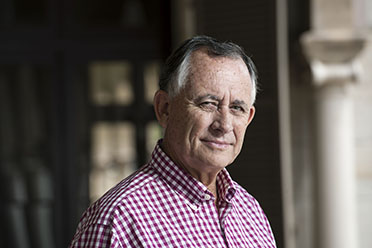
QUT political scientists Professor Clive Bean and Associate Professor John Mickel said seats with small margins which are primarily in South East Queensland will be key to deciding the outcome of the upcoming Queensland election.
Professor Bean said although a good deal of attention would be paid to the regions, the majority of the seats with small margins were in the south east, both in and outside of Brisbane.
Associate Professor Mickel agreed that the outcome would depend on the number of these south-eastern seats that Labor could pick up to offset losses in the regions.
Professor Bean said the previous two elections had been characterised by large swings but did not expect that to be the case this time.
Associate Professor Mickel said the Queensland election 2017 would be an election like no other.

"The voting system has changed, the seats have changed and the minor parties have changed," he said.
"This is the first election since 2009 where the Premier is not actively disliked by the general public."
Professor Bean said that while the resurgence of One Nation was clearly the ‘wild card’ in the election, the degree of success One Nation achieves and its impact on the outcome through preferences was difficult to predict at the moment.

"One Nation tends to take more primary votes away from the LNP than from Labor and the preferences do not always flow back to the LNP, partly because most minor party voters do not follow the parties’ how to vote cards," her said.
"This, combined with One Nation’s stated policy of putting the sitting member last, could result in the party doing more harm to the LNP than to Labor."
Professor Bean said the electoral redistribution and the addition of four new seats had favoured Labor so that on the redrawn boundaries Labor had a notional majority (48 of the 93 seats).
"If the status quo were retained, Labor would likely be returned to office," he said.
"As a result of the redistribution, Labor is now notionally in front in several seats with sitting LNP members (albeit very narrowly), and if One Nation enacts the policy of putting sitting members last in those seats this might be enough to shore them up for Labor."
Professor Bean said the return of full preferential voting (with voters required to distribute preferences to every candidate on the ballot paper) was likely to favour Labor in seats where there is a significant Greens vote, but the impact of preferences from One Nation voters was less clear.
Associate Professor Mickel said on published data the LNP could not win in their own right but would need to rely on minor parties to form government.
Professor Bean said if the result was close and no party achieved a majority in its own right, it was possible that even if Labor won more seats than the LNP, the LNP might end up forming government with minor party support (reminiscent of what recently happened in New Zealand, albeit with Labour the beneficiary in that case).
Professor Mickel said the LNP was currently hamstrung by a deeply unpopular Federal Government and that overall the electoral cycle favoured a return of the State Labor Government provided Labor picked up seats in south east Queensland.
Media contact: Rose Trapnell, QUT Media team leader, 3138 2361 or 0407585901 or rose.trapnell@qut.edu.au.




